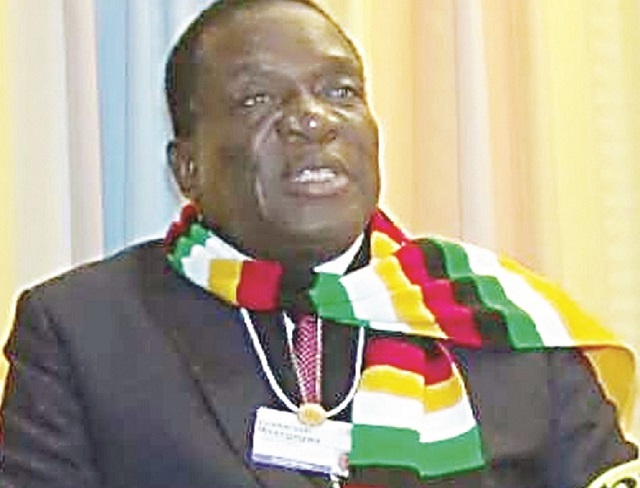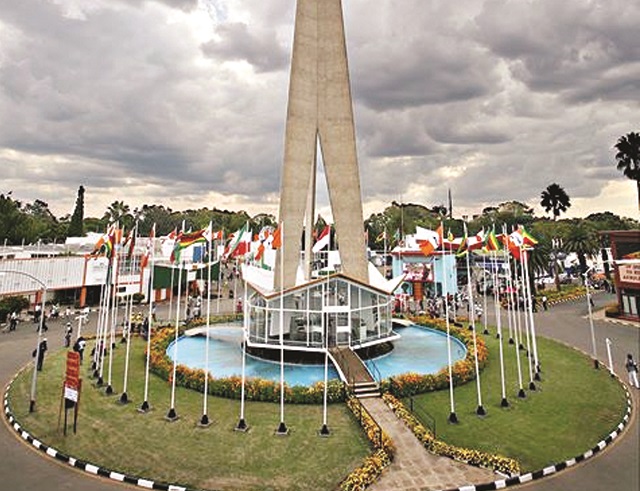Is US seeking a ‘soft-landing’ in Zim?

Ranga Mataire, Harare Bureau
Many independent observers were shocked when the United States recently renewed economic sanctions on Zimbabwe at a time when it appeared Harare and Washington were warming up to each other following the resignation of long-time ruler Robert Mugabe in November last year.
The US renewed what its calls Restrictive Measures on Zimbabwe in February this year in a move interpreted by many as an antithesis of the warm relations that were developing between the two countries following the coming into the fold of the new political dispensation led by President Mnangagwa.
The European Union and the United States imposed sanctions on Zimbabwe in 2002, after accusing ex-president Mugabe’s government of human rights violations, rigging elections and repression of press freedom.
While the renewal of sanctions might have surprised many, those who have followed America’s foreign policy towards Africa, and Zimbabwe in particular, following the end of the Second World War were not so much shocked by the country’s reticent move.
The decision by America to renew sanctions needs to be interrogated from the perspective of a country that has always played second fiddle to its European partners, particularly Britain when it comes to control and influence of overseas territories that were once the domain of particular colonising powers.
The US has cooperated with Britain and its European Union partners on numerous international platforms, but its tag of not having been a colonising power has always made it look like a junior partner when it comes to overseas “territories”, particularly those that were under the domain and influence of Britain.
Conscious of its junior tag, the US has always sought other means of asserting its authority and influence on foreign governments in former colonies of Britain and in most cases the approach has not yielded the much needed positive results.
Given its military might, the US has in reality never embraced playing second fiddle to any country — Britain included, on the international political arena.
What is easily observable even to a political novice is the fact that when it comes to Zimbabwe, the US is not particularly happy with Britain’s swift embrace of the new political dispensation.
The Americans appear particularly piqued by Britain’s ambassador Catriona Laing’s enthusiastic acceptance of the new political dispensation.
Britain was arguably the first country to embrace the new political order in Zimbabwe in November. It appears all other European countries took a cue from Britain, which described the November development as a peaceful transition.
It is without doubt that if Britain was still in the EU, it would have surely weighed more its influence on other members to consider lifting the economic sanctions imposed on Zimbabwe almost two decades ago.
Britain has massive investments in the country and is keen on ensuring that years of inflexible relations between Harare and London are swiftly mended.
Britain is also aware of China’s economic impact in Zimbabwe and is not prepared to continue being bystanders in a country which historically was the crown’s sphere of influence.
Besides other considerations, economic interests are always the primary driver of any foreign policy strategy.
While America has traditionally pursued an isolationist policy in the aftermath of the First World War, there is general appreciation of the fact that the world has changed and is changing.
The characterisation of America’s foreign policy between the two World Wars as isolationist has long been trashed as nothing, but a myth.
America has always acted in a subtle way in safeguarding its interests and the idea that only the Japanese attack on Pearl Harbour jolted Americans from their insular stupor is a misnomer.
The country has always delicately weighed the pros and cons of intervening in crisis situations beyond its shores.
The advent of religious fundamentalism, the need to contain communism, the rise of China and Russia as competing world powers completely shattered the myth of isolationism.
In short, America had to engage and cooperate with other countries to safeguard its own economic, political and security concerns.
Despite Donald Trump’s “America First” mantra, the truth is that America needs the world in as much as the world needs America.
So why is America behaving like a bigoted partner when it comes to Zimbabwe at a time when almost every other country is warming up?
There are several reasons that explain the US’ attitude.
First, the US is known for supporting opposition political parties in Zimbabwe, particularly the failed MDC-T party. Over the years, the US government has financially and morally invested in the opposition party directly and through different non-governmental organisations fronting or pursuing the opposition agenda.
The new dispensation in Zimbabwe is not an ideal that the Americans have always aspired to happen in the country. It was a bitter sweet development. Although Mugabe had become an albatross, the Americans would have preferred change initiated from outside Zanu-PF.
On the other hand, the British had long envisaged that change can only come from within and readily accepted the new political dispensation.
The second explanation is that the US’ obstinate attitude could be interpreted as a bargaining act meant to press the new government to be amenable to latent demands by the world’s sole super power, particularly after the harmonised elections.
The third and more fundamental reason for America’s inflexible attitude emanates from the need by Americans to strategically position themselves in the geopolitics of the region.
Zimbabwe is a critical country in the region and the Americans would want to exert some pressure in a bid to make the new government amenable to US’ long term foreign policy interests.
Another fact that also explains the US’ nonchalant attitude is the reality that the country is far freer from commitments in Africa south of the Sahara than any other region in the world.
In almost all other parts of the world, American policy operates in a setting of old established friendships and understandings, supplemented in the post-war years by a network of alliances that include Nato, CENTO and SEATO.
In other words, while the US was the first country to establish a permanent embassy in Harare at independence in 1980 and is the biggest provider of aid (not direct to government), it still remains a newcomer to sub-Sahara Africa.
The actual American stake in Africa remains relatively slight. There is an inherent thinking within the US establishment that America can do without Africa.
Andrew N Kamarck of the International Bank in 1958 once remarked that: “We could get along without African commodities and African markets with an imperceptible ripple in our standard of living.”
While Kamarck’s remarks could have been mere hyperbole, the investment figures from America don’t paint a picture of a country that takes Africa seriously.
In round figures estimated of the $30 billion which Americans have invested abroad, less than $850 million has found its way to Africa.
Despite its sparse interest in sub-Sahara Africa, it must not be forgotten that America has always had a keen interest in developments in Zimbabwe.
It will be remembered that after the Unilateral Declaration of Independence in November 1965, the United States recalled its Consul General from the then Salisbury, closed its Information Service (USIS) library and withdrew its Agency for International Development (USAid) and trade promotion officials.
The United States was to completely close its Consulate General on March 17, 1970.
Despite administration opposition, the US Congress was to pass legislation on January 1, 1971, which permitted it to import strategic materials, such as chrome from Rhodesia.
The legislation was to be repealed in March 1977 and the United States once again enforced all sanctions.
Since 1976, the United States has lent support to initiatives aimed at bringing majority rule in Zimbabwe.
It supported the Anglo-American proposals for a peaceful settlement as it supported British efforts to bring about and implement the Lancaster House Agreement of December 21, 1979.
Of course, the prime interests of the Americans could have been to dilute the influence of the Chinese and Russians in a new independent State, but the fact remains that the country has long had a keen interest in developments in Zimbabwe.
Given its historical involvement, including the political and financial resources it has invested, the US must be ruing its late embrace of the new political dispensation and might be seeking to recover lost ground already occupied by the British and the Chinese.
It has not escaped the US that at the Zimbabwe conference on reconstruction and development (ZIMCORD) held in March 1981, the country pledged $225 million over a three-year period towards the government’s goals of post-war reconstruction, distribution and development of skilled manpower.
By the end of 1986, the US had contributed $380 million, the majority in grants, with some loans and loan guarantees.
However, in July 1986, the US government decided to discontinue future bilateral aid to Zimbabwe owing to some political differences, particularly certain statements that it deemed undiplomatic uttered at the United Nations.
Aid programmes previously agreed upon were not affected by the decision nor were regional development programmes that might benefit Zimbabwe.
Historically, America’s real influence and presence in southern Africa might be scanty, but it has always had serious vested interest in Zimbabwe.
As recently remarked by the US acting Assistant Secretary of State for African Affairs Donald Yamamoto in a Reuters interview, Zimbabwe has always been on the radar of the world’s super power.
“It’s a transition to a new era for Zimbabwe, that’s really what we are hoping for,” Yamamoto said.
One is persuaded to agree with the view that the coming of the new dispensation caught the US by surprise and is now seeking to recover lost ground.
In short, the Americans might be seeking a “soft-landing” that would redefine their relations with Zimbabwe.










Comments